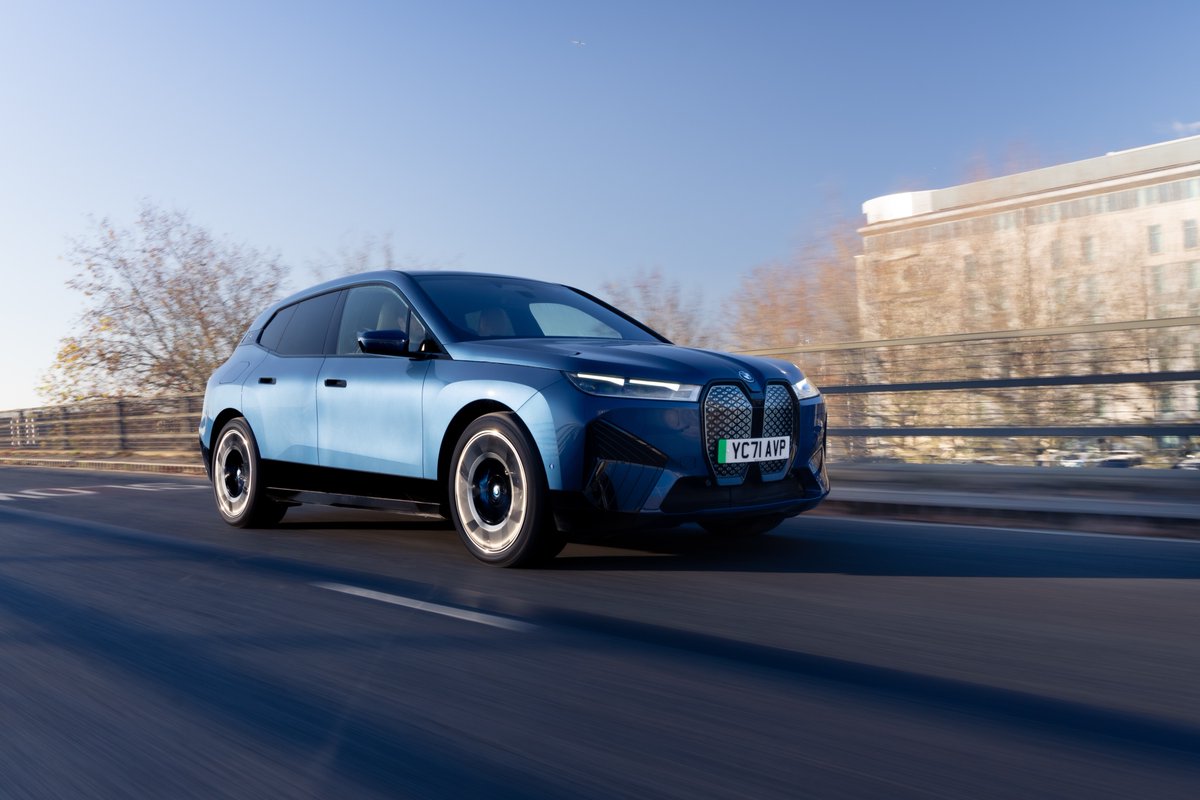Is an electric car right for you?
Discover if an electric vehicle (EV) suits your lifestyle with our comprehensive guide.

Considering the switch to an electric vehicle (EV) but unsure if it's the right choice for you?
With the rising popularity of EVs and their potential to revolutionise the way we drive, it's essential to evaluate whether an EV aligns with your lifestyle, needs, and preferences.
This guide aims to provide you with valuable insights and considerations to help you determine if transitioning to an EV is the best decision for you.
Summary
Before diving into the details, let's take a quick look at the key points we'll cover in this guide:
Understanding the Benefits of EVs
Evaluating Your Driving Habits
Assessing Charging Infrastructure
Considering Budget and Financial Factors
Exploring Environmental and Sustainability Impact
Now, let's delve deeper into each of these factors to help you make an informed decision about whether an EV is the right fit for you.

Starting with the benefits
Lower operating costs
EVs typically have lower fuel and maintenance costs compared to traditional internal combustion engine vehicles. With fewer moving parts and no need for oil changes or other regular maintenance associated with conventional vehicles, EV owners can save money over the long term.
Reduced environmental impact
EVs produce zero emissions, contributing to cleaner air and reduced greenhouse gas emissions. By switching to an EV, drivers can play a significant role in combating climate change and reducing their carbon footprint.
Enhanced driving experience
Electric vehicles often offer smoother and quieter rides compared to traditional vehicles. Instant torque delivery provides responsive acceleration, while regenerative braking helps maximise energy efficiency and battery range.
Potential incentives and rebates
Many governments and local authorities offer incentives and rebates to encourage the adoption of EVs. These incentives may include tax credits, rebates on vehicle prices, and reduced toll fees for EV drivers.

Evaluating your driving habits
Daily commute distance
Consider the typical distance of your daily commute and whether it falls within the range capabilities of available EV models. Most EVs offer sufficient range for most people's commutes, but longer commutes may require careful planning and access to chargers en route.
Frequency of long-distance travel
Assess how often you go on long-distance journeys and whether EV range limitations would impact your travel plans. While EV charging infrastructure is expanding, longer trips may require strategic route planning and consideration of charging stops along the way.
Access to charging
Determine whether you have access to convenient charging, both at home and in public. Installing a home charger is a game changer if you're considering an EV, while access to public charging stations can support longer trips and travel flexibility.
Parking options and home charging feasibility
Consider your parking situation and whether you have access to off-street parking or dedicated parking where a charger can be fitted. Installing a home charging station may require permission from landlords or homeowners' associations, so assess the feasibility of home charging based on your living situation.
Assessing Charging Infrastructure
Availability of public chargers
Research the availability and locations of public chargers in your area and along your typical routes. Consider factors such as charging speed, network compatibility, and accessibility when evaluating public charging.
Convenience of home charging options
As we mentioned earlier, assess the feasibility of installing a home charger based on your parking situation. Home charging provides so much convenience and flexibility for your daily charging, especially for EV owners with off-street parking or dedicated garage space.
Consideration for long trips and travel routes
When planning longer trips, consider the availability of fast-charging stations and charging infrastructure along the way. Strategic planning to incorporate public chargers can help alleviate concerns about range anxiety and support seamless long-distance travel in an EV.

Budget and Financial Factors
Lease cost vs. long-term savings
Evaluate the lease cost of EVs compared to traditional vehicles and consider the potential long-term savings on fuel and maintenance expenses. While EVs may have a higher lease price, lower operating costs and potential incentives can offset the upfront investment over time.
Potential incentives, tax credits, and rebates
Research available incentives, tax credits, and bonuses offered by governments and local authorities for EV purchases. These incentives can significantly reduce the cost of ownership and make EVs more financially attractive compared to conventional vehicles.
Cost of home charging installation
Factor in the cost of installing a home charging station, including equipment and installation fees, when considering the overall affordability of EV ownership. While home charging provides huge convenience and flexibility, the upfront investment in charging infrastructure should be considered in your budget planning.
Environmental and Sustainability Impact
Reduction in greenhouse gas emissions
Switching to an EV helps reduce greenhouse gas emissions and mitigate climate change by eliminating emissions associated with traditional vehicles. By driving an EV, you can contribute to cleaner air and a healthier environment for future generations.
Contribution to a cleaner environment
EVs offer significant environmental benefits, including improved air quality and reduced noise pollution. By reducing reliance on fossil fuels and transitioning to electric mobility, EV drivers can help create cleaner, more sustainable communities and mitigate the negative impacts of transportation on public health and the environment.
Role in promoting renewable energy adoption
EVs play a crucial role in promoting the adoption of renewable energy sources such as solar and wind power. By serving as flexible energy storage devices and supporting grid integration, EVs enable greater utilisation of renewable energy and help accelerate the transition to a low-carbon energy system.

In conclusion, transitioning to an electric vehicle (EV) is a significant decision that requires careful consideration of various factors.
By evaluating your driving habits, assessing charging infrastructure, considering budgetary constraints, and understanding the environmental impact, you can determine if an EV aligns with your lifestyle and values.
Whether you're motivated by financial savings, environmental sustainability, or the latest automotive technology, exploring the world of EVs can open up new possibilities for a greener and more efficient future of transportation.

Still trying to work it out?
Get in touchWhat's next?
Enjoyed this? Read our latest news

Hyggemarketing: Reliable Nationwide Travel for a Growing Agency
Jack Vernon, CEO of Hyggemarketing, shares how his VW Caddy lease from Motorlet transformed his travel experience—bringing comfort, professionalism, and room for his beloved Akita, Orla.

John Worth Group: A Seamless Fleet Leasing Experience with Motorlet
John Worth Group, a renowned interiors specialist, partnered with Motorlet to streamline their management vehicle fleet. Over two years, they've experienced professional service, timely deliveries, and competitive pricing, reinforcing their trust in Motorlet's leasing solutions.

Business Lease Success for ECF
Ryan at ECF wanted a specific Audi e-Tron GT with options — and we were the only leasing company that could deliver it, under budget, with expert BIK guidance.
Customer Stories
We've helped over 1,000+ customers find their dream car, hear what they have to say.
Read more reviews“As usual, top class service. The team at Motorlet provided first class service from beginning to end with the friendly helpful expertise of Josh and Wendy. Will continue to use their services as I have done for the past six years...” Keep reading
Diane Parish | Audi Q5

New deals weekly
Subscribe to get the latest offers, guides, new, and more, straight to your inbox.


















